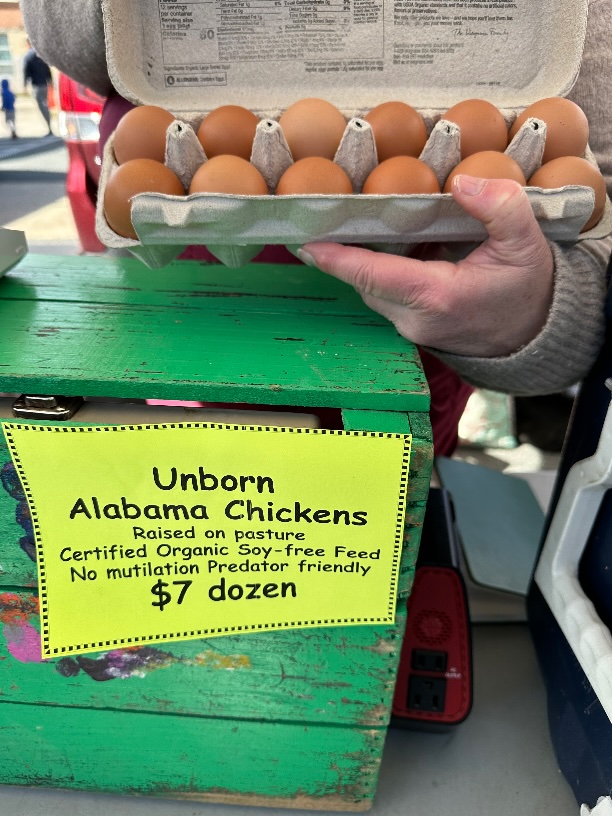Archive for February, 2024
"Who's for POONSH?"
Samuel Johnson's anti-Scots prejudices are well know, as Wikipedia notes:
Although Boswell, a Scotsman, was his close companion and friend, Johnson, like many of his fellow Englishmen, had a reputation for despising Scotland and its people. Even during their journey together through Scotland, Johnson "exhibited prejudice and a narrow nationalism". Hester Thrale, in summarising Johnson's nationalistic views and his anti-Scottish prejudice, said: "We all know how well he loved to abuse the Scotch, & indeed to be abused by them in return."
I have a dim (perhaps false?) memory that his prejudices included a complaint about the use of final rises on declarative sentences, a documented feature of Scottish English (see e.g. the examples in this 2008 post). But I (very lightly) skimmed Johnson's A Journey to the Western Isles of Scotland, Boswell's parallel The Journal of a Tour to the Hebrides with Samuel Johnson, and Boswell's Life Of Johnson, without finding any basis for my belief. If anyone can do better, I'll be grateful.
Read the rest of this entry »
"Emote Portrait Alive"
EMO, by Linrui Tian, Qi Wang, Bang Zhang, and Liefeng Bo from Alibaba's Institute for Intelligent Computing, is "an expressive audio-driven portrait-video generation framework. Input a single reference image and the vocal audio, e.g. talking and singing, our method can generate vocal avatar videos with expressive facial expressions, and various head poses".
As far as I know, there's no interactive demo so far, much less code — just a github demo page and an arXiv.org paper.
Their demo clips are very impressive — a series of X posts from yesterday has gotten 1.1M views already. Here's Leonardo DiCaprio artificially lip-syncing Eminem:
Read the rest of this entry »
A Video Game Decoding Ancient Languages
Xinyi Ye, who sent this to me, thought the idea of multiple languages and the Tower of Babel in a game would be quite cliché, but this one is actually good. You will be surprised at what you see and hear.
Read the rest of this entry »
Is this authentic Cantonese?
A decade or so ago, we often had discussions about whether or not what was alleged / claimed to be Cantonese writing really was. Now it is good to see native speakers asking the same questions.
From a post of Wan Chin, a controversial scholar/ cultural critic in Hong Kong.
Read the rest of this entry »
"Overgrowin'" in San Francisco?
From C.B., an exchange in S.F.:
This week I heard an unusual usage from a random stranger on the street.
I was questioning whether a stairway in the adjacent block – which was not visible from where I was without climbing a steep hill first – had been repaired and could once again be used for through access. They replied that it had been, "But it's overgrowin'."
I couldn't tell whether they were using the word "overgrowing" where I would have expected "overgrown" or whether they were pronouncing "overgrown" with syllabic "n".
Read the rest of this entry »
AI writes sinoglyphs
From Jeff DeMarco:
A Chinese friend has been experimenting with AI, the result being guǐzi 鬼子 ("ghost characters"). We’ve seen something similar, but the hànzì 汉字 ("sinoglyph") manipulation is almost artistic. Have you encountered this before?
Read the rest of this entry »
AI humor of the day
Let's start with the last four panels of today's Doonesbury:

Read the rest of this entry »
Thought panzers
Vacillating Chinese terminology for think tanks
Mark Metcalf wrote to tell me:
Global Times*just ran an article that might be of interest regarding PRC think tanks and a new book related to this topic: “Researchers, scholars explore methods to boost China’s influence of thoughts”.
*an appendage of People's Daily
I was caught up short by the clumsy expression "influence of thoughts". But something else about this new development bothered me much more. Mark tracked down the title of the book in question:
《Sīxiǎng tǎnkè: Zhōngguó zhìkù de guòqù, xiànzhuàng yǔ wèilái 思想坦克:中国智库的过去、现状与未来》("Thought tanks [armored vehicles]: the past, present, and future of China's wisdom warehouses"]) [VHM — intentionally awkward translation for special effect, to be explained below]
What jumped out at me in the title was the use of tǎnkè 坦克 for (think) tank. In my Chinese studies, I learned that tǎnkè 坦克 was a military weapon and not a repository. And when you Google images of tǎnkè 坦克, all you see are images of tracked vehicles. That's how all my Pleco dictionaries translate the term, as well. However, when you put the term into Google Translate, it provides both the tracked vehicle and an alternative translation: "a large receptacle or storage chamber, especially for liquid or gas" with yóuxiāng 油箱 ("oil / gas[oline] / fuel tank") as a synonym. Yet GT can't translate the term sīxiǎng tǎnkè 思想坦克. [VHM: And well it should not. See more below.]
Going out on a limb, could the expression sīxiǎng tǎnkè 思想坦克 have the dual meaning (i.e., a pun) for an offensive organization ("vehicle") that is used to control / defend the narrative of the CCP?
Read the rest of this entry »
Legally binding hallucinations
I missed this story when it happened 10 days ago, and caught up with it yesterday because the BBC also got the word — Maria Yagoda, "Airline held liable for its chatbot giving passenger bad advice – what this means for travellers", BBC 2/23/2024:
In 2022, Air Canada's chatbot promised a discount that wasn't available to passenger Jake Moffatt, who was assured that he could book a full-fare flight for his grandmother's funeral and then apply for a bereavement fare after the fact.
According to a civil-resolutions tribunal decision last Wednesday, when Moffatt applied for the discount, the airline said the chatbot had been wrong – the request needed to be submitted before the flight – and it wouldn't offer the discount. Instead, the airline said the chatbot was a "separate legal entity that is responsible for its own actions". […]
The British Columbia Civil Resolution Tribunal rejected that argument, ruling that Air Canada had to pay Moffatt $812.02 (£642.64) in damages and tribunal fees. "It should be obvious to Air Canada that it is responsible for all the information on its website," read tribunal member Christopher Rivers' written response. "It makes no difference whether the information comes from a static page or a chatbot."
Read the rest of this entry »
"It crosses the i's and dots the t's"
In a YouTube video yesterday, Michael Popok explained the differences (in New York State law) among a "verdict", a "decision and order", and a "judgment", in the context of the latest stage of Donald Trump's civil fraud case. Those intricacies are an interesting aspect of the sociolinguistics of the law, but the topic of this post is Popok's word-exchange speech error at about 4:45:
uh it crosses the i's and dots the t's
sorry
dots the i's and crosses the t's
Read the rest of this entry »
Modals, idiolects, garden-path sentences, and English translations of a ninth-century Chinese poem
Here I present a digest of four scientific linguistics papers from the latter part of the month of January, 2024 to show that our field is very much alive in diverse subfields at the beginning of the new year.
"The Semantics, Sociolinguistics, and Origins of Double Modals in American English: New Insights from Social Media." Morin, Cameron et al. PLOS ONE 19, no. 1 (January 24, 2024): e0295799.
Abstract: In this paper, we analyze double modal use in American English based on a multi-billion-word corpus of geolocated posts from the social media platform Twitter. We identify and map 76 distinct double modals totaling 5,349 examples, many more types and tokens of double modals than have ever been observed. These descriptive results show that double modal structure and use in American English is far more complex than has generally been assumed. We then consider the relevance of these results to three current theoretical debates. First, we demonstrate that although there are various semantic tendencies in the types of modals that most often combine, there are no absolute constraints on double modal formation in American English. Most surprisingly, our results suggest that double modals are used productively across the US. Second, we argue that there is considerable dialect variation in double modal use in the southern US, with double modals generally being most strongly associated with African American Language, especially in the Deep South. This result challenges previous sociolinguistic research, which has often highlighted double modal use in White Southern English, especially in Appalachia. Third, we consider how these results can help us better understand the origins of double modals in America English: although it has generally been assumed that double modals were introduced by Scots-Irish settlers, we believe our results are more consistent with the hypothesis that double modals are an innovation of African American Language.
Read the rest of this entry »
Permalink Comments off


